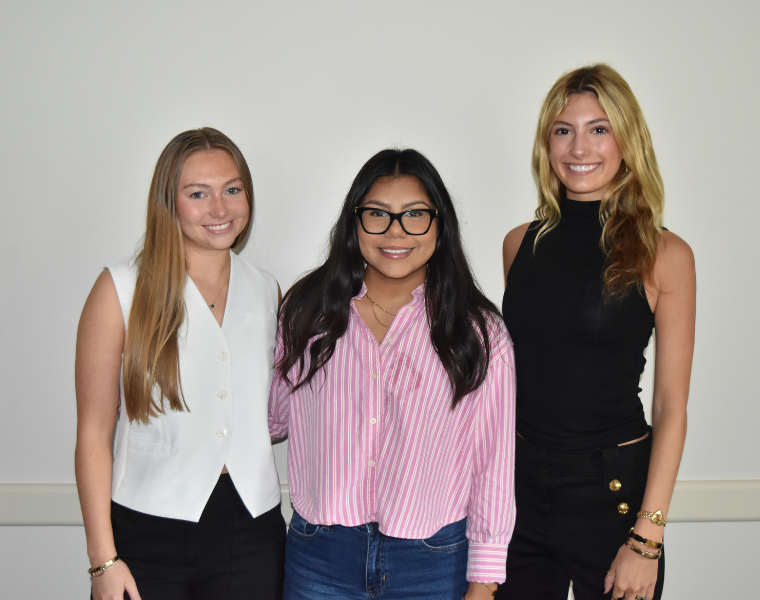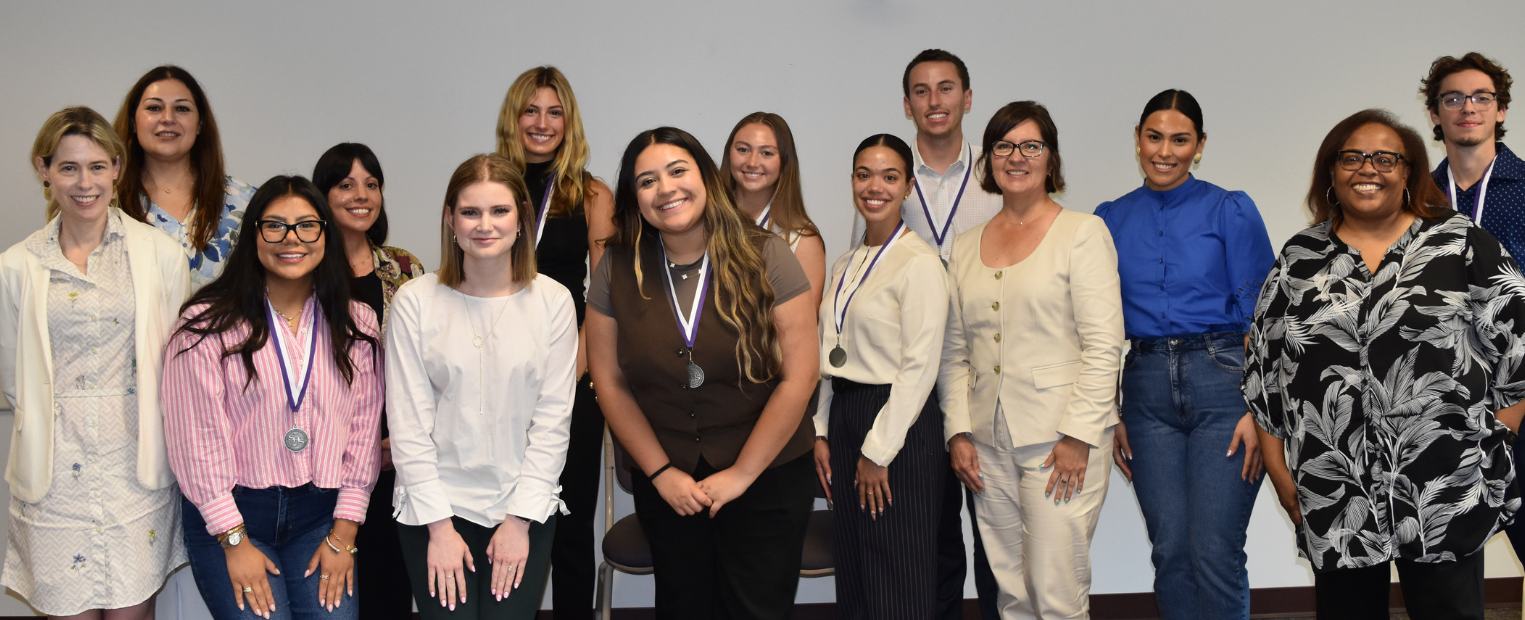Each week, students from TCU’s Spanish internship class stepped out of the classroom and into the heart of Fort Worth’s Spanish-speaking communities. Through hands-on placements with local nonprofits, students used their language skills to connect, educate and advocate, making meaningful contributions while gaining invaluable real-world experience.
For Jacquelline Balderas, a double major in Spanish for the professions and neuroscience, the internship experience offered a unique intersection of her academic passions and her commitment to community health. She served as a bilingual community educator with the Alzheimer’s Association of North Central Texas, where her work focused on outreach across 40 counties.
Balderas said one of the most meaningful experiences of her internship was an initiative with Trinity Metro helping implement Alzheimer’s awareness training into the onboarding process for transit employees.
“We’re not just informing new hires,” Balderas said, reflecting on her collaboration. “We’re planting seeds of compassion and awareness in every corner of our community.”

Balderas sees language as a powerful tool for connection and access. She said being able to speak Spanish fluently and understand cultural nuances has been essential to building trust within the community.
“Many individuals feel more comfortable opening up and asking questions when the person in front of them looks like them, speaks like them, and understands their values,” Balderas said. “It’s an honor to be that bridge.”
“Language and culture operate as two codependent tools, a means of connecting people... and bridging understanding. This is my ‘why.’” - Jacobe Davis
Jacobe Davis, a double major in Spanish and Hispanic studies and educational studies, said she was motivated to pursue a Spanish internship because of her love for the Spanish language and culture.
Her placement at the Tarrant County Women’s Center put her on the front lines of community education about sexual violence. As a bilingual team member, Davis engaged directly with Spanish-speaking families, students and professionals about how to engage in conversations/dialogue regarding sexual violence.
“There is both empowerment and prevention in community education,” Davis said. “I feel very lucky to be part of such an outstanding team! I am unbelievably thankful to have been given the opportunity to learn from/work with these communities in spreading awareness and advocating the prevention of sexual violence.”
Davis also finds deep inspiration from her mentor, Brenda Barajas-Koch, prevention education specialist for Latinx populations at The Women's Center of Tarrant County.
“Doing this work day in and day out as a professional and doing it year after year, it can seem really dark and depressing, especially in when we live in an environment where rape culture is very prevalent,” Barajas-Koch said. “But people like Jacobe help me understand that what I'm doing is planting seeds every day, and she's planting seeds every day to where I do have true hope in our future.”
At Artes de la Rosa, a nonprofit arts organization in Fort Worth’s historic Northside, intern Sophia Dunn, a double major in Spanish and Hispanic studies and speech-language pathology, said she experienced the intersection of language, culture and creativity. She supports community events, builds outreach databases and works with parents and volunteers in both English and Spanish.
Dunn was deeply moved during “Sueños Compartidos,” a cultural celebration that brought hundreds of people together for a traditional Mexican market and fashion show.
“This organization is way more than just an arts organization,” she said. “It is a space where community comes together to celebrate each other and their culture; art is just the medium that fosters these connections.”
Adapting to the fast-paced, relationship-driven environment of a nonprofit was transformative for Dunn.
“I quickly had to adapt to a more fluid and dynamic pace of work,” she said. “It’s taught me the importance of meeting people where they are at and embracing different styles of working.”
While the work was varied, each student shared a common goal: to use language as a tool for equity.
“Language and culture operate as two codependent tools, a means of connecting people... and bridging understanding,” Davis said. “This is my ‘why.’”
Balderas agreed.
“Language access is a form of equity,” Balderas said. “And it’s a vital part of creating healthier, more informed communities.”
Their experiences are part of a larger vision led by Spanish & Hispanic Studies Associate Professor María Ciriza Lope, with support from Department Chair Sohyun Lee, who created the class to connect TCU students with Fort Worth’s vibrant Spanish-speaking population.
“It’s so different from the academic space,” Ciriza said. “We have to be so flexible. But we have learned so much about what these nonprofits do in the Fort Worth area. I am so grateful for the site supervisors because they have been mentors for the students, guiding them through the process.”
As these students reflect on a semester of growth, they are united by a shared sense of purpose and a deeper understanding of the communities they now call their own.
